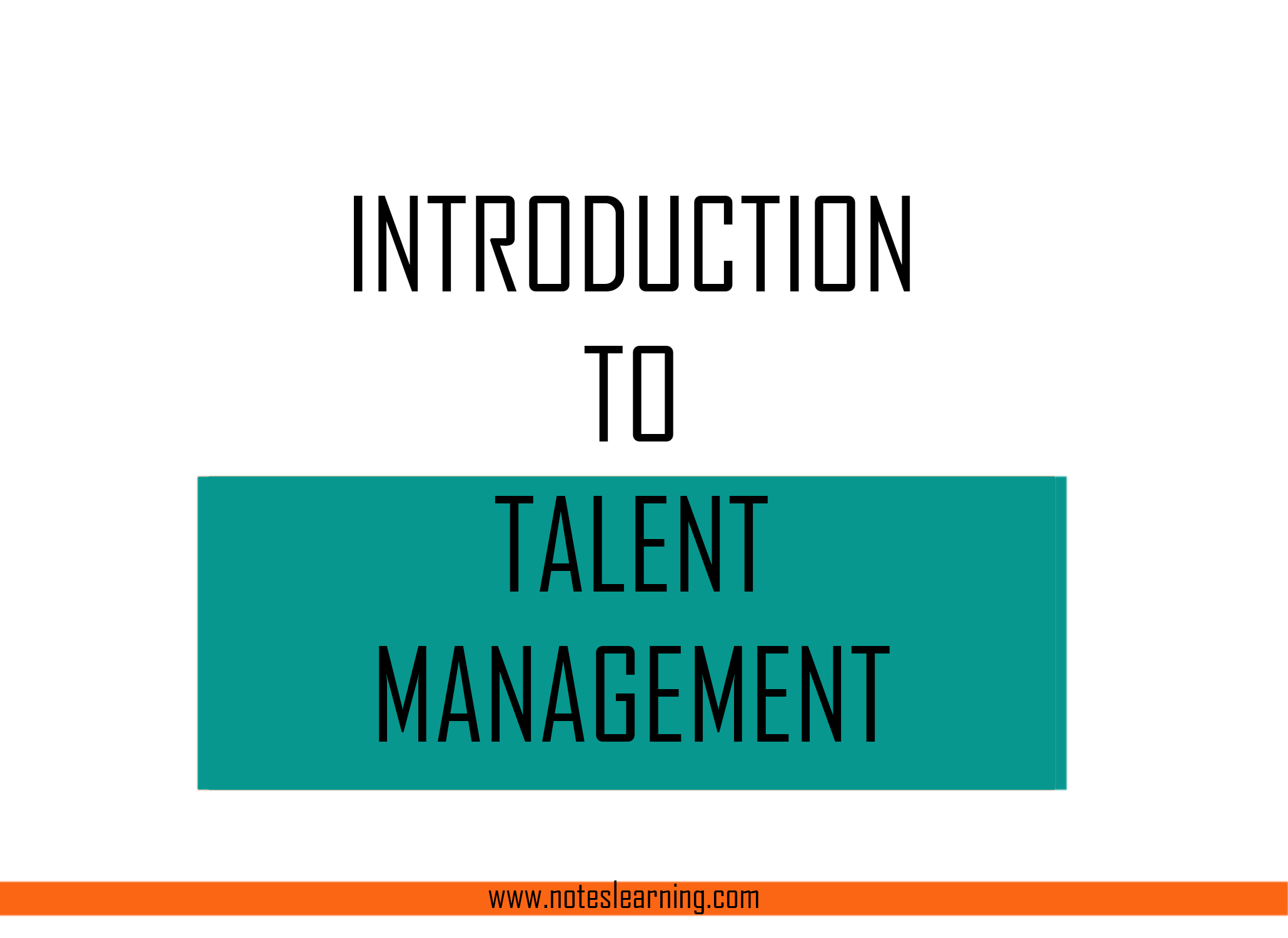Introduction to Talent and Talent Management
Talent can be defined as a set of unique abilities inherited by individuals. It could be anything one is good at i.e. creativity, intelligence, experience, time management, decision making, communication, persuasion, leadership etc. Talent can also be referred to an individual’s capacity and capability. It also includes all the qualities that emerge effortlessly by an individual. And talent becomes an enduring ability only with effort and practice.
Talent management is an HR strategy that aims to recruit, train and retain high-performing employees. It is also the process of grooming and retaining employees with proper training and succession planning.
Talent management is not a one shot effort; it is an ongoing progressive process that considers employees or individuals first so that they can achieve their objectives and long term plans. This HR strategy requires the involvement of all organization levels to make it work.
| Coordinated Effort for Talent Management |
| 1. The Human Resource Department is there to identify the employment needs of the company and the potential required of the employees. |
| 2. Supervisors, counselors and coaches access the employees for a required assessment. |
| 3. HR managers provide training, compile and store employee information, and analyze the required skills. |
| 4. Senior management is responsible for keeping Learning Culture alive and motivating employees through internal promotions, incentives and career planning. |
| 5. Workplace atmosphere is also responsible for keeping the learning culture and succession planning culture alive. For this, every factor in work environment must work together. |

Types of Talents
There is no specific way for defining the talent and its form. Generally speaking, there are 2 types of talents:
- Unidimensional
- Multidimensional
Both serve the same purpose but with different perspectives.
- Unidimensional Talent
Different individuals have different abilities to perform and excel. In an organizational environment, some employees are good at a particular skill and their performance depends on that particular skill. For instance, some employees may be best in administration work, some may be best in Sales, while some others may be best in their respective domains. Hence when individuals possess a singular talent in any particular field, it is called unidimensional talent.
- Multidimensional Talent
Likewise, in an organization we can also observe that some employees are good at multiple skills and abilities. For instance, one employee is best in administration work, account management, and decision making at the same time. Such employees are said to possess multidimensional talent.
Multidimensional talent is a very demanding set of talent. Most employers wish their employees to be multidimensional in their work. This is because, when employees are multidimensional, the workplace is diverse and efficiency is high as employees are highly capable and multidimensional talents in an organization saves money. Therefore, every organization seeks to retain employees with their multidimensional talent.
Importance of Talent Management
Right choice:
We are in a competitive era. Everyone wants the best of the best. Therefore, it is very important that the right person should get the right job. Talent management assists in making the right selection i.e. a person with right skills and ability is involved in the right position. Wrong selection of employees in the right position or right selection of employees in the wrong position will cost any company a fortune.
Retaining top talent:
Retaining employees is more cost effective than new hiring. Talent management is particularly important in retaining the talent and grooming them to make them all-time ready.
Understand the employees productivity :
As a Talent Management functions, it is important to assess the employees and their performances. HR teams are responsible for matching the right ability with the right job. For instance, last year many PhD holders were applying for lower level posts which is bad for a healthy work environment. HR considers every factor related to employees and acts for better productivity.
Company growth:
If a company does not hire required employees and will not train them accordingly, it will not satisfy the needs of consumers. Employees are the one who perform and deliver hence selection of employees is very significant. Employees can provide any company- a competitive advantage. Efficient workers perform better and eventually benefit the company’s sales and profit figures. For Instance, Apple and Blackberry were both mobile companies but Apple survived because of its adaptability and employees provide that confidence and adaptability. Manpower strengthens a company’s base and assists in growth.
Key factors towards Talent Management
- Better Human Resource Planning is key to the successful organization operation. Good planning promotes Talent Management without any judgment and partiality.
- Fair recruitment and selection process makes the working environment more desirable. Candidates get equal opportunities to participate in the selection process. This also reflects a good company image and employees wish to join such a company .
- Training and Development is another factor for promoting Talent Management. Talend Management and succession planning requires skill assessment. As a result, employees need to get different skill building drills and training so that they can perform as expected.
- Retention of talent is another step towards talent management. Hiring new talent is not always possible, therefore, most of the organizations go for retaining their performing employees or potential employees. Retention can be done through incentives, promotions, training, vacations, loyalty programs and other facilities.
In absence of the above factors, a company could face a void i.e. Talent Gap. Talent gap refers to ‘lack of skilled employees’ in an organization.
Consequences of failure of Talent Management
- Increase in employee dissatisfaction and turnover.
- Decline in productivity for organization and employees.
- Decrease in work efficiency and resources are wasted.
- Demotivated work environment talent gap.
- Bad company reputation due to employee turnover and work-culture ethics arising as a result of talent mismatching.
- Lack of cooperation and coordination both inside and outside the company
References:

